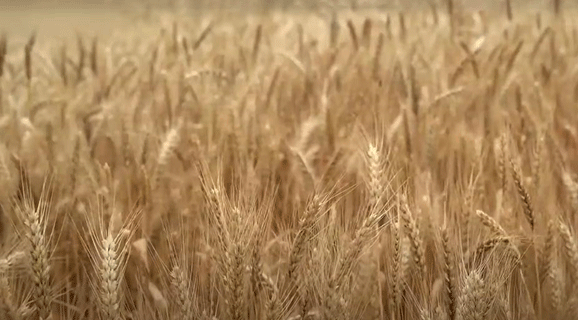Wheat Prices Rebound in Chicago Amid U.S. and French Crop Concerns
Chicago wheat prices experienced an uptick on Monday, recovering from last week’s four-month low, driven by concerns over crop conditions in the United States and France. Favorable weather in the U.S. Midwest has bolstered expectations for a strong harvest, pushing up soybean and corn prices, though they remain near four-year lows. As of 18:28 Beijing time, the most active wheat contract on the Chicago Board of Trade (CBOT) rose 0.8% to $5.47-1/4 per bushel, recovering from last week’s low of $5.25-1/4.
Market Dynamics
- U.S. Crop Conditions and Weather Forecasts:
- Soybeans rose 1.9% to $10.56-1/4 per bushel, up from last week’s low of $10.31-3/4.
- Corn increased 1.7% to $4.11-3/4 per bushel, rebounding from the June 28 low of $3.99-1/2.
- Favorable weather in the U.S. Midwest is expected to support a robust harvest, alleviating some market fears but maintaining a cautious outlook due to unpredictable weather patterns.
- Concerns in France:
- French soft wheat crop conditions plummeted to their lowest level in eight years, significantly behind normal harvesting schedules.
- Delays in the French wheat harvest, exacerbated by rain, could potentially increase the EU and UK demand for U.S. wheat.
Expert Insights
Matt Ammermann, Commodity Risk Manager at StoneX, noted that concerns about the U.S. Midwest weather ahead of the USDA’s crop progress report were supporting wheat prices. Additionally, worries about rain delaying the European wheat harvest, particularly in France, could create more demand for U.S. wheat imports.
Speculative Activities and Market Impact
Ample supply has led speculators to build net short positions in these commodities, especially soybeans, making the market susceptible to short-covering. Ammermann highlighted that corn and soybeans received some support from short-covering, influenced by political uncertainties following President Biden’s decision not to run for re-election.
Global Supply and Forecast Adjustments
- On Friday, consultancy IKAR revised down its forecast for Russia’s 2024 grain production.
- Speculation suggests that China may increase its inquiry into purchasing U.S. soybeans, further influencing market dynamics.
Implications for Farmers and Agronomists
Farmers, agronomists, and agricultural engineers need to stay informed about the latest weather forecasts and market reports to make timely decisions. The recent price fluctuations highlight the importance of monitoring both local and international crop conditions, as these factors can have significant impacts on global supply chains and pricing.
The rebound in Chicago wheat prices, driven by concerns over crop conditions in the U.S. and France, underscores the volatility and interconnectedness of global agricultural markets. As weather patterns and geopolitical factors continue to influence crop production and prices, stakeholders in the agricultural sector must remain vigilant and adaptive to changing market conditions.
Error




